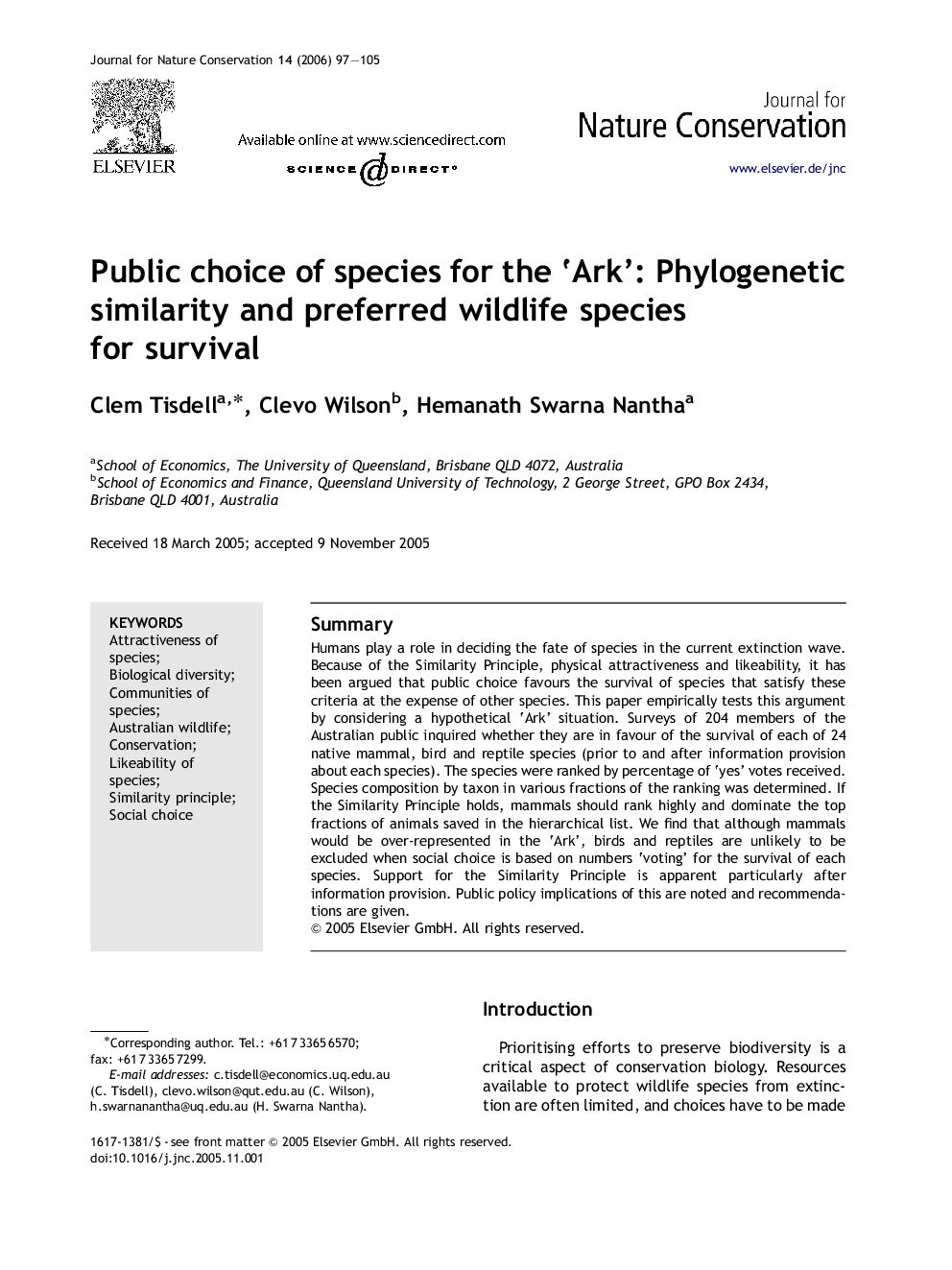| Article ID | Journal | Published Year | Pages | File Type |
|---|---|---|---|---|
| 4400287 | Journal for Nature Conservation | 2006 | 9 Pages |
SummaryHumans play a role in deciding the fate of species in the current extinction wave. Because of the Similarity Principle, physical attractiveness and likeability, it has been argued that public choice favours the survival of species that satisfy these criteria at the expense of other species. This paper empirically tests this argument by considering a hypothetical ‘Ark’ situation. Surveys of 204 members of the Australian public inquired whether they are in favour of the survival of each of 24 native mammal, bird and reptile species (prior to and after information provision about each species). The species were ranked by percentage of ‘yes’ votes received. Species composition by taxon in various fractions of the ranking was determined. If the Similarity Principle holds, mammals should rank highly and dominate the top fractions of animals saved in the hierarchical list. We find that although mammals would be over-represented in the ‘Ark’, birds and reptiles are unlikely to be excluded when social choice is based on numbers ‘voting’ for the survival of each species. Support for the Similarity Principle is apparent particularly after information provision. Public policy implications of this are noted and recommendations are given.
